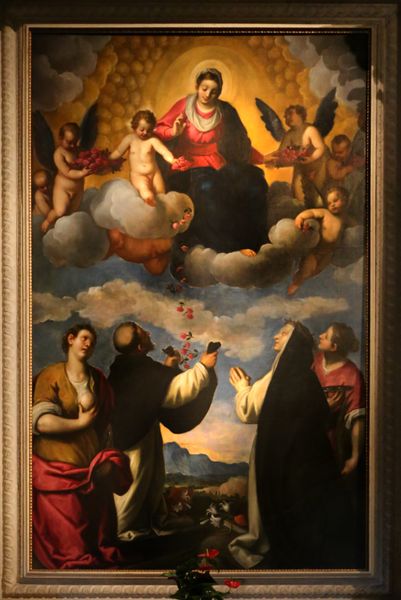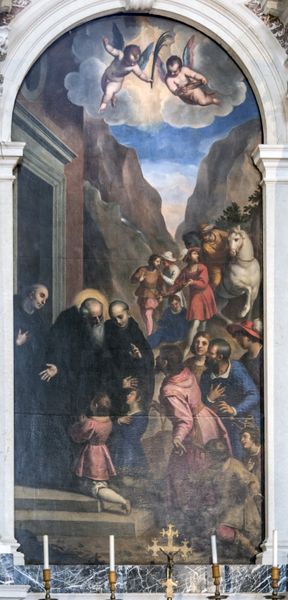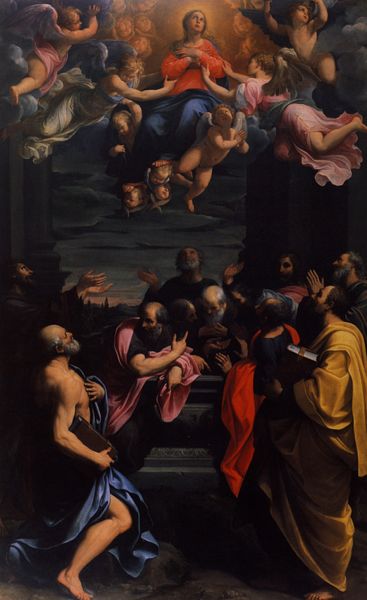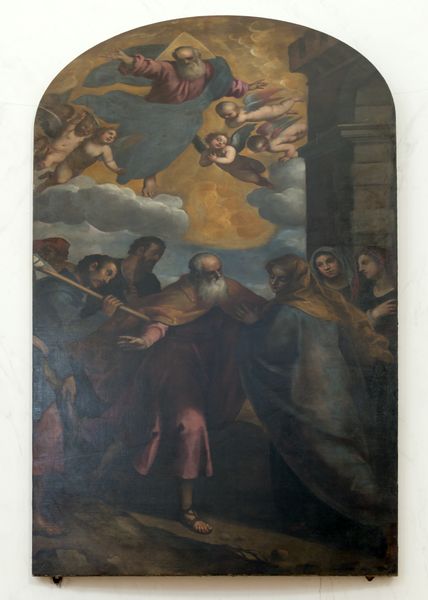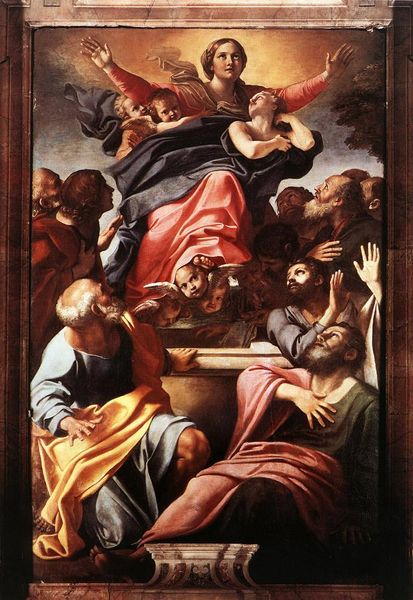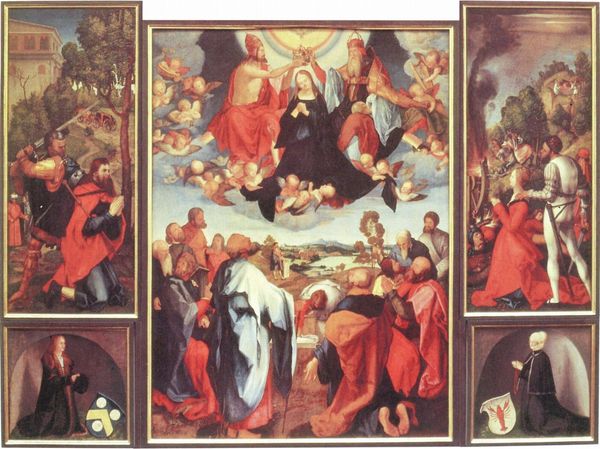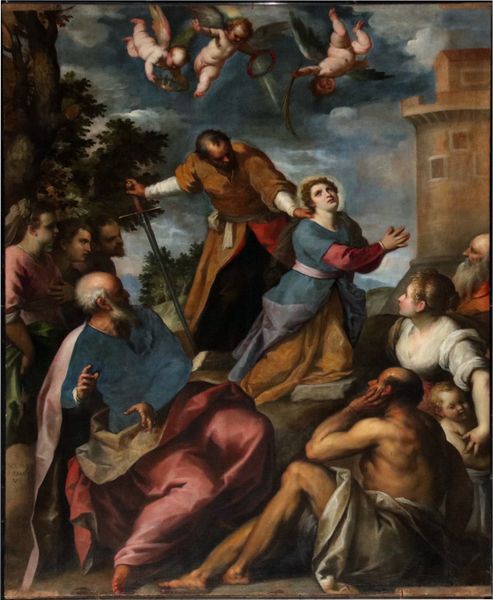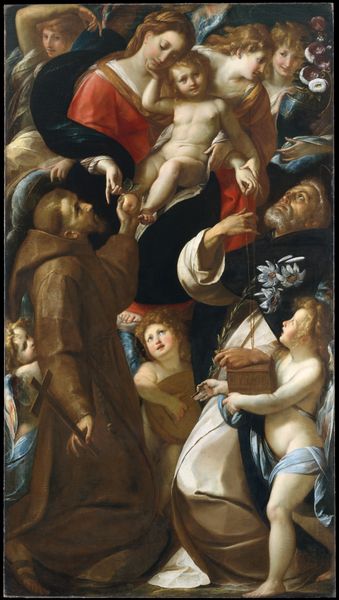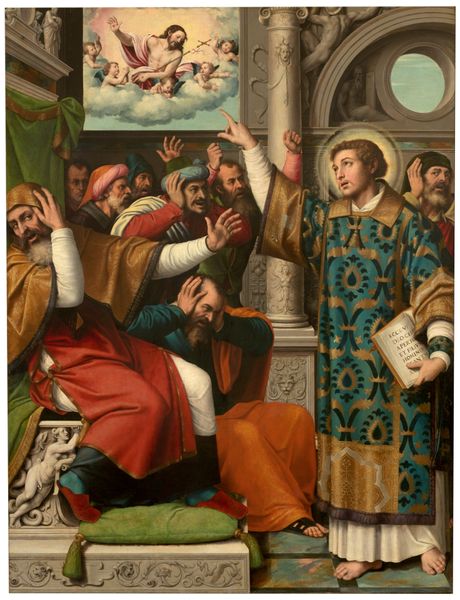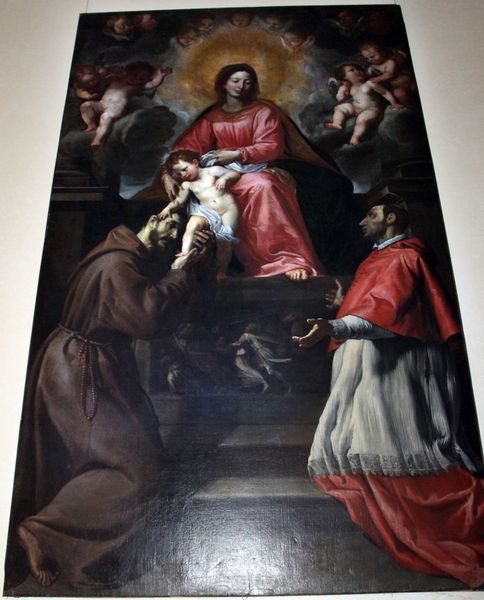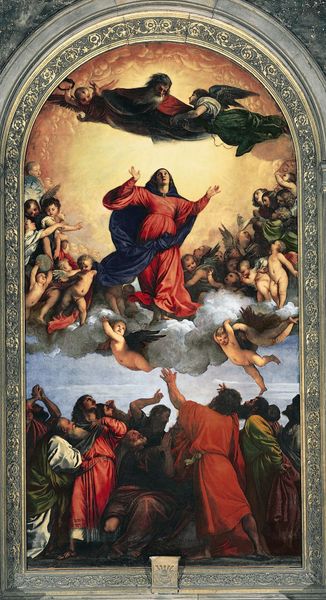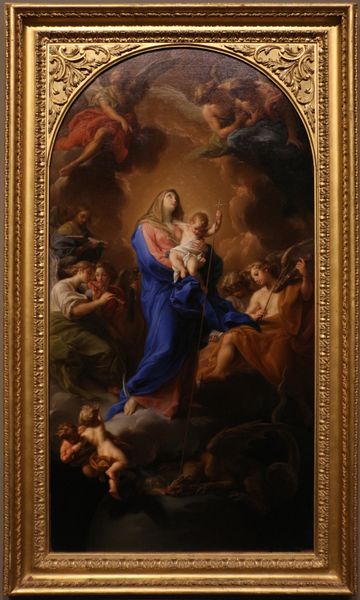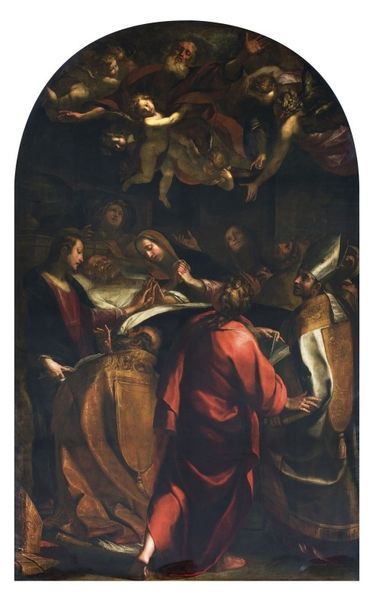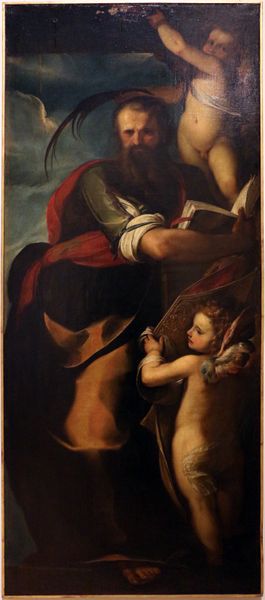
oil-paint
#
allegory
#
baroque
#
oil-paint
#
figuration
#
oil painting
#
mythology
#
history-painting
Copyright: Public domain
Gerard van Honthorst painted Saint Paul Caught up to the Third Heaven sometime between 1617 and 1652. The painting shows a vision described by Saint Paul in the Bible, where he ascends to paradise. Honthorst was Dutch, but he spent a decade in Rome at the beginning of the 17th century. There, he witnessed the Counter-Reformation’s artistic embrace of religious ecstasy. This picture is from that cultural milieu. Honthorst uses dramatic lighting and dynamic composition to convey Paul's rapture. The cherubic figures and swirling clouds evoke a sense of divine transport. The Catholic Church encouraged such imagery to inspire faith. Honthorst’s painting uses the Baroque style, with its heightened emotion and theatricality, for religious and political purposes. To understand this painting fully, we can explore the religious and political history of the 17th century. We can look to sources that explain the Catholic Church's use of art as propaganda. We can look to the writings of Saint Paul himself. By doing so, we can understand the painting not just as a work of art but as a product of its time.
Comments
No comments
Be the first to comment and join the conversation on the ultimate creative platform.
